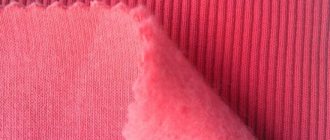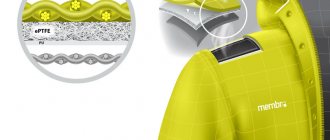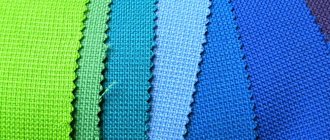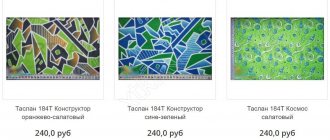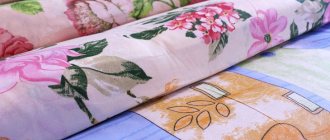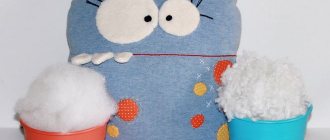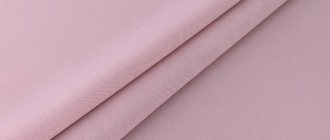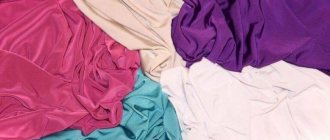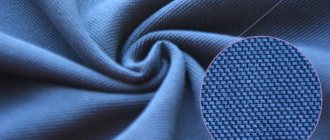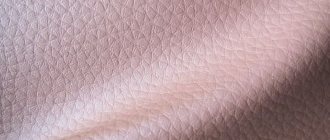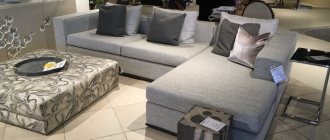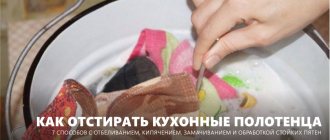In household use, bamboo towels, bedspreads, tablecloths and bed linen made from the fibers of this plant are increasingly found. Bamboo textiles are gaining popularity year after year. High consumer qualities, environmental friendliness, and a reasonable price lead to the fact that it is gradually replacing the usual cotton and linen. In the USA, Great Britain, and Holland there are fast-growing companies that supply clothes only from bamboo fibers. The scope of application of this material is constantly expanding, but the leader is still bamboo home textiles, pillows and blankets.
History of appearance
Bamboo is native to the countries of the Pacific region. Furniture, dishes, and interior items were traditionally made from it. Since its cultivation has a low cost, and furniture production has a high level of waste, attempts to process bamboo into a new quality have been going on for a long time - since the beginning of the 20th century.
The impetus for research was given by the rapid scientific and technological growth of China, and at the beginning of 2000, Chinese scientists managed to transform the cellulose of this plant into a fiber close to viscose in composition. Since then, the material began its rapid spread. Chinese textile workers were the first to produce fabrics from bamboo fiber. Currently, this material has almost completely replaced cotton from the market in this country.
Bamboo, cotton or microfiber: which towel is better?
The times of shortages, fortunately, are a thing of the past: today there are a lot of beautiful and practical textiles, a huge selection, including towels. However, using towels every day, we rarely think about their effect on our body.
Most often, people prefer natural textiles and buy affordable cotton towels. In fact, the most common cotton on the market is cheap cotton grown with huge amounts of pesticides.
Although such cotton remains a natural material, it is hardly better than an artificial material, for example, microfiber.
However, low-quality synthetics are even worse:
it can cause irritation on the skin, does not absorb moisture very well, and besides, the fabric shrinks during use and does not last long.
Bamboo towels are more expensive than their counterparts made from other materials, but they are definitely the best
. However, they are not always truly environmentally friendly and truly bamboo.
Saving on personal hygiene products is fraught with not the most pleasant consequences in the form of allergic reactions, rapid loss of the original appearance and wasted money.
Whatever material we are talking about, be it bamboo, cotton or synthetics, preference should be given to quality products from trusted brands
. In this case, it will be possible to fully appreciate the benefits of each material without risk to your own health.
The indisputable advantages of cotton include
: softness, durability, natural composition and reasonable price.
Microfiber textile
(a mixture of polyester and polyamide) is characterized by its low weight, high hygroscopicity, strength, quick drying and the ability to not retain unpleasant odors. A huge additional bonus is a large range of microfiber towels, which can be not only terry, but also waffle or non-woven.
As for bamboo towels
, then they have hypoallergenicity, antimicrobial properties, durability and unmatched absorbency.
Our table will help you figure out which type of towels is better.
| Characteristic | Cotton | Microfiber | Bamboo |
| Ease of use | Quite soft, after repeated washings the fibers become coarser | Not everyone likes it due to its small thickness | The softest of all options, retains softness even after 50 washes |
| Ability to absorb moisture | Absorbs at least 300% of liquid by weight of the towel | Absorbs up to 200% of liquid by weight of the towel | Absorbs at least 450% of liquid by weight of the towel |
| Other benefits |
|
|
|
| Flaws |
|
|
|
| Durability and strength | Withstands up to 500 washes | Withstands up to 2000 washes | Withstands over 500 washes |
| Price of towel 70*140 cm | From $4 | From 3 dollars |
|
| Features of care | Washable at temperatures up to +60 C, can be ironed, bleached and used with conditioner | Machine washable at temperatures up to +40 C. Do not iron or dry on radiator | Machine washable at temperatures up to +30C, do not iron or bleach |
You will find some useful tips that will help you buy a towel from the most suitable material in the videos.
Compound
Bamboo towels, sheets and other home textiles can be made from 2 types of fiber:
- bamboo flax - produced by mechanical grinding of raw materials using enzymes, resulting in short, up to 15 cm, rough fibers. Fabrics made from it are the most environmentally friendly, but they are expensive;
- bamboo viscose. The raw materials are exposed to carbon disulfide and caustic soda. The output is a fluffy hygroscopic fiber. This is cheaper production. Most of the products on the market are made of this type.
Products are made from both types of yarn. Typically, models made from bamboo linen do not have additives - in English they are labeled “100% bamboo linen”. Quite expensive. Bamboo viscose products can contain anywhere from 30% to 60% cotton. It is added to reduce the weight of the fabric. The fact is that bamboo towels are quite heavy when wet. Buyers don't always like this.
Description
Bamboo towels first appeared on the market in 2005. At first they were made in China, but today Turkish manufacturers of this textile are much better known. Let's look at the most important features and characteristics of bamboo towels.
First of all, we note that the bamboo from which towels are made is a natural material that has undergone special environmentally friendly processing. The textiles do not contain toxins or harmful impurities; bamboo towels are completely safe, including for children.
The composition of towels can be either 100% bamboo or mixed - a percentage of cotton and bamboo. Both varieties are good in their own way; their price and appearance will differ slightly. If you don’t want to immediately switch from cotton to bamboo, you can purchase an “intermediate” option.
Most often on sale you can find such sizes of bamboo towels as 50x90, 50x70 and 70x140. All this, of course, is in centimeters. Follow the link to read in detail what bamboo fiber is.
Compound
Let's find out what bamboo towels are made from.
In general, bamboo towels presented on the modern textile market are made in two ways. The best way is mechanical. Such products are marked on labels as “bamboo linen”, which means “bamboo linen”.
The second method is to make towels labeled as “bamboo viscose” or “bamboo rayon,” which translates as “bamboo viscose” or “silk.” In this case, the towel does not consist entirely of bamboo, but a percentage of cotton. The share of cotton can range from 30% to 60%.
Bamboo itself, as a raw material for textiles, has the following positive characteristics. It is growing very quickly, and therefore, raw materials for products are always available, and the shortage of raw materials is not reflected in their final price.
Bamboo is so unpretentious and has such high adaptability that there is no need to use any pesticides or chemical fertilizers to grow it. Therefore, bamboo fiber is always environmentally friendly and safe. This is its great advantage compared to cotton, since the latter is often genetically modified.
In addition to towels, other home textiles are also produced from bamboo: including bathrobes, home suits, children's clothing, and sheets.
What types of gift towels are there for men?
See original towels for men.
Towels for newborns: .
Properties of bamboo towels
Bamboo terry towels have the following properties:
- antibacterial - it has been proven that within a day, 70% of bacteria that come into contact with this material die;
- hypoallergenic - does not cause any skin reactions upon contact, which is why baby bamboo towels and corners for babies are especially popular;
- breathability – the material “breathes”;
- resistance to odor adsorption – the natural properties of the fibers do not allow odors to be absorbed;
- strength and wear resistance;
- hygroscopicity - no other fabric can compare with bamboo in its ability to absorb moisture;
- comfort – the products are soft and gentle to the touch;
- resistance to shrinkage - practically do not shrink after washing;
- environmental friendliness - the fabric meets the highest requirements both in terms of the composition of the raw materials and production technology.
Bamboo towels, reviews: pros and cons
It is also worth mentioning briefly about the shortcomings. This towel is more expensive than its cotton and synthetic counterpart. In addition, when purchasing this product, you need to take into account that it will shrink after the first wash.
What else do reviews say about bamboo towels? The disadvantages of bath accessories made of this material, according to buyers, are that they are not protected from the appearance of fungus. That is, being antibacterial, they do not always cope with this scourge.
These products are very soft, have extraordinary tenderness and fluffiness. According to these indicators, they are unattainable champions in comparison with synthetic and cotton “relatives”.
They are pleasant to use; the tactile sensations when using them cannot be described in words. Bamboo products absorb moisture well in large quantities. They are environmentally friendly. Anyone, regardless of age, can use bamboo towels without fear. Within just a few minutes after use, they become dry without retaining any foreign odors.
Advantages and disadvantages, differences from cotton models
The advantages of bamboo towels become obvious when comparing them with their cotton counterparts. Main parameters:
- environmental friendliness - cotton is grown and processed using a large amount of aggressive chemicals;
- hygroscopicity - both materials have this property and are suitable for the production of textiles for bathrooms, but the ability to absorb moisture in cotton is slightly lower;
- antibacterial - only bamboo has this quality, having received it “inherited” from the tree of the same name;
- shrinkage – after washing, a bamboo towel practically does not shrink or become deformed, unlike cotton.
Bath and shower products
A bath towel is quite an expensive item, and it is not always possible to buy a suitable option the first time. However, when choosing bamboo, you definitely can’t go wrong: such a product will meet all the requirements for bath accessories. Softness, aesthetic appearance, durability, antibacterial properties and hypoallergenicity
– these are just a small part of the benefits of bamboo textiles in general and towels in particular.
You can see how luxurious large bamboo towels look from the video.
Bamboo bath towels are available in various sizes: 70*140, 90*150 cm, etc. You should choose the appropriate size based on the body type of a particular person: the bath towel should be such that you can wrap yourself completely in it.
Sauna lovers will certainly appreciate this practical towel with elastic band.
, the position of which can be fixed using convenient Velcro.
A bamboo sundress towel
is another good option for bath procedures, which is perfect for a woman of any size and age.
a set of several bamboo towels can be an excellent solution.
same or different sizes. There are so many color schemes and finishing options for such sets that a man, a woman, or a child can find a suitable option.
Types of towels on sale
All towels are divided into household and hotel. According to their intended purpose, terry products are:
- bathhouses - 70x40cm or enlarged (often beach) 100x150cm;
- showers – 50x100cm;
- hygienic (for face or hands) – 50x85cm or 50x90 cm;
- kitchen - 50x70cm;
- small (napkin) – 30x30cm or 30x50cm.
Often models are decorated with patterns, borders, and embroidery. According to the type of drawing, products are divided into:
- printed – embroidery and drawing around the edges;
- plain dyed - without embroidery, plain;
- jacquard - the relief pattern is applied by machine (hairs of different lengths are cut).
The standard density of models for home is from 400 g/m2 to 420 g/m2. For the entire family of terry products, the standard ranges from 300 g/m2 to 1200 g/m2.
The Russian market mainly offers bamboo towels from Turkey and China. The name “Turkish towels” has already become synonymous with the concept of “quality product”, so it is often recommended to choose products from this southern country.
Diversity
There are several types of bamboo towels on sale today. There are kitchen products that do an excellent job of removing dust and dirt. There are no divorces from them. Dries quickly and does not absorb odors. These towels are usually small in size.
There are also children's towels. They usually have bright, cheerful colors. There are towels with various elements: a hood, ties, funny images and other colorful children's decor. Bamboo towels are perfect for kids. They do not leave irritation on children's delicate skin, which is why they are very popular among young mothers. The baptismal set also often includes a large bamboo towel.
Features of care and washing
High-quality products made from natural fibers are expensive and deserve careful care. Rules for caring for bamboo towels:
- wash on a gentle cycle at 40°C;
- do not use bleaches or aggressive media;
- medium spin mode;
- air drying in the unfolded state;
- Ironing is not necessary; if desired, you can use a warm iron.
Bamboo towels are superior to their competitors in all main quality indicators. Made from an innovative material called “21st century fiber”, they meet the most stringent standards, including EU quality directives.
Benefits of microfiber towels
Super absorbent: Due to their high absorption quality, microfiber bath towels are widely used in swimming pools. The moment swimmers leave the pool, using microfiber towels quickly dries their body.
Easy to Dry: Microfiber bath towels are usually preferred by people living in cold areas where drying a towel after a shower is not so easy. Indeed, even at room temperature, microfiber towels dry much faster than cotton ones, while maintaining the freshness of the towel and avoiding mildew.
Minuses:
Special Washing Care: Microfiber towel requires special care when washing. It takes extra effort on your part to keep these towels in good condition. You can wash cotton towels in warm water and detergent in the washing machine without worrying about anything happening to them; But to properly wash microfiber towels, you must strictly follow the directions on your product tag. By following basic washing instructions, your microfiber towels will last a long time.
What are the best towels to buy? Quality of towels: which is better? What is the best towel composition?
A cotton towel is the most convenient to use at home, beauty salons, spas, wellness, baths, saunas, hairdressers, barbershops, beauty clinics, massage centers, hotels and hotels. However, microfiber towels are good for travel and are easy to carry + compact. Bamboo towels are also very comfortable to use and have many more benefits than regular cotton towels.
Colored or white towels? What color of towel should I choose?
Microfiber, bamboo and cotton towels come in a wide variety of shades. Therefore, first of all, you need to decide on the color of towels: black, white, red, blue, burgundy, green, emerald, orange, yellow, gray, brown, beige, chocolate, mint, turquoise, lemon, pink, etc.
Which towel is easier to care for? How to care for a towel?
Cotton and bamboo towels can be washed using regular washing methods. Microfiber cloths (microfiber) should not be machine dried at high temperatures.
Whatever towel material you choose for your bath, spa, wellness, sauna, steam bath, beauty salon, hairdresser, barbershop, fitness club, massage, beauty treatments, pet salon, yoga center, hotels or hotel - you always need to take care of them, so that they serve you for a longer period.
In the LILACS.RU online store you can always buy high-quality towels wholesale, retail, as a set, or as a gift: economy, standard, premium and luxury.
We stock large, medium and small the best terry towels from the manufacturer (world brands) with a huge selection of colors and materials. You can order towels for the body, head, hair, face, arms and legs. Choose the best bath towels for professional use in the LILACS.RU online store. Go to the store
How to recognize a low-quality product?
It is quite possible to purchase a high-quality terry towel made of bamboo in the middle price range, the main thing is to follow a few simple recommendations.
If possible, it is better to buy bamboo towels in specialized stores
, giving preference to products of famous brands.
All information about the manufacturer and composition of the product must be indicated on the label
. Towels made exclusively from bamboo fiber are the most practical choice, but textiles made from a mixture of bamboo and cotton fibers are also durable and beautiful. It is worse if the bamboo towel is made with the addition of synthetics: in this case, its absorbency capabilities will be lower.
It makes sense to check the quality of the towel tactilely: the terry should be fluffy and smooth, pleasant to the touch
. The optimal terry length is 4-5 mm.
To last a really long time and quickly absorb moisture, a towel made of bamboo threads must be dense enough. So, for baths and showers, towels with a density of at least 450-500 g/m2 are suitable. m.
In this case, the weight of one terry towel measuring 70*140 cm will be about 450 g.
Appearance also matters. Crooked stitching, uneven seams, poorly processed edges - such defects in quality products are unacceptable. And one more thing: serious manufacturers almost never produce bamboo towels in bright, flashy colors - a “poisonous” color is almost always evidence of a fake.
Finally, when purchasing, you should also focus on price. The average cost of a regular bamboo towel 50*90 cm is about 6 dollars; for a bath towel measuring 90*150 cm you will have to pay at least 10 dollars.
If you want to buy quality products cheaper, you will have to go to the homeland of most home textile manufacturers, Turkey. There prices will be at least 1.5-2 times lower.
To learn about the criteria by which experts determine the quality of bamboo products, watch the video review.
Choosing a bamboo towel
To choose the right bamboo towel, you need to know some nuances.
Like cotton fiber, bamboo thread can be produced in several ways. To turn a hard bamboo trunk into soft pliable fibers, almost all manufacturers use certain chemicals (at a minimum - ordinary soda and acid, which subsequently neutralizes it). The “eco” mark on bamboo towels only means the absence of chemicals in the finished fabric and its safety for your health.
Ideally, the bamboo textile manufacturer has GOTS, Oeko-tex, Eco-label, Ecocert certificates
- this indicates such important facts as:
- environmental cleanliness of finished products;
- Only safe chemicals are used in production;
- The factory operates in a closed cycle mode, which does not harm the environment.
Bamboo flax is produced absolutely without the use of artificial chemicals
. This material has a very high cost, so it is used only for the manufacture of luxury textiles and clothing.
